FLAIR FLIGHT A Contrast-enhanced Image Produced From The Hubble Images Of Comet ISON Taken April
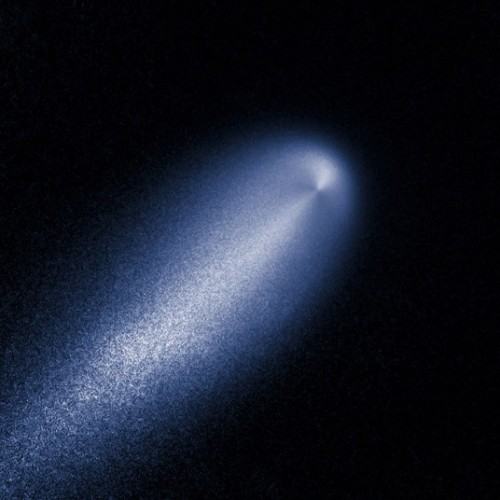
FLAIR FLIGHT A contrast-enhanced image produced from the Hubble images of comet ISON taken April 23, 2013 reveals the subtle structure in the inner coma of the comet; the coma decreases in brightness proportionally to the distance from the nucleus. Comet ISON, thought to have travelled from the Oort Cloud surrounding our solar system beginning a million years ago, will make its closest approach to the Sun on Thursday. (Photo: NASA via AP / The Telegraph)
More Posts from Astrotidbits-blog and Others
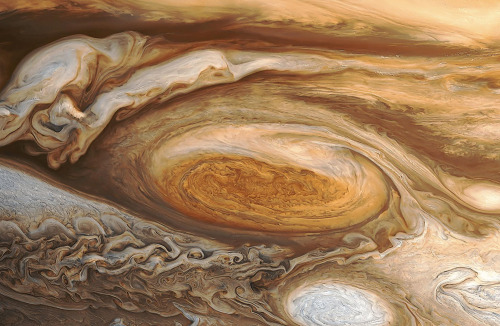
The Great Red Spot

1705 Halley Documents Comet British astronomer Edmund Halley predicted the return of the comet that we now call Halley’s comet. He documented historic comet sightings and found patterns that led him to theorize that comets, which until then were considered baffling and even potentially dangerous because of their irregularity, actually had calculated orbits around the sun and would return periodically. He believed that the comets witnessed in 1531, 1607, and 1682 were actually the same comet and predicted it would return in 1758. Even though Halley died in 1742 the comet arrived on schedule and later became known as Halley’s Comet.

4 hour star trails timelapse at Point Reyes
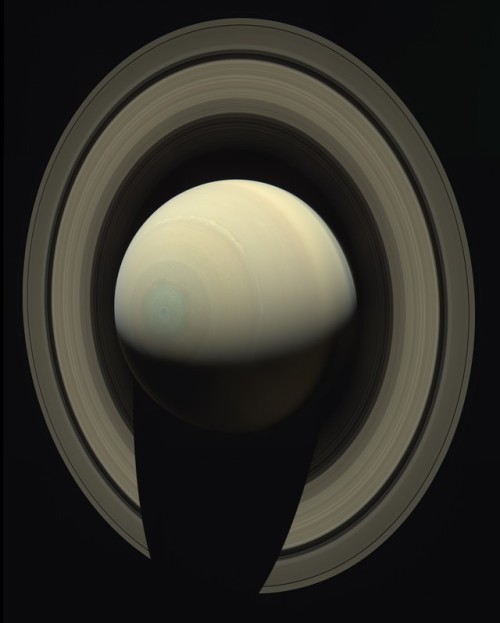
Image of Saturn taken by the Cassini spacecraft in 2013
Image credit: NASA / JPL-Caltech
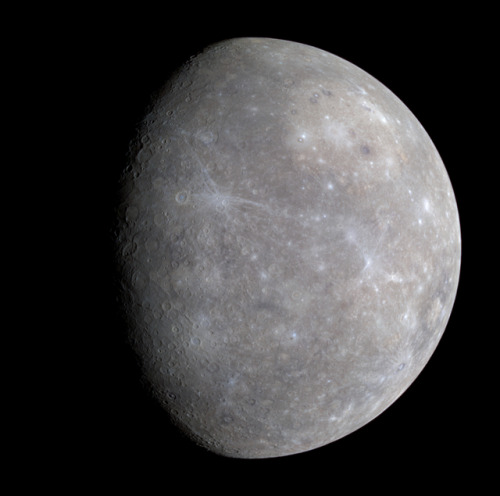
Mercury in enhanced color, imaged by MESSENGER
Credit: NASA / JPL
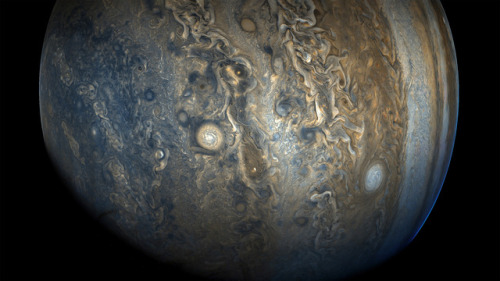
What a stunner! See Jupiter’s southern hemisphere in beautiful detail in this new citizen-scientist-processed JunoCam image.
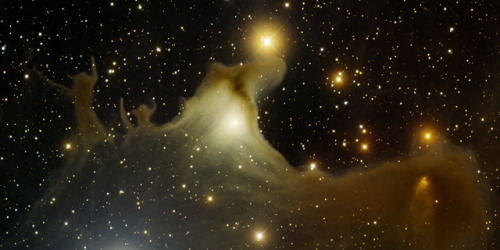
NGC 7023, Ghost Nebula
What Happened to Mars?
Billions of years ago, Mars was a very different world. Liquid water flowed in long rivers that emptied into lakes and shallow seas. A thick atmosphere blanketed the planet and kept it warm.

Today, Mars is bitter cold. The Red Planet’s thin and wispy atmosphere provides scant cover for the surface below.

Our MAVEN Mission
The Mars Atmosphere and Volatile EvolutioN (MAVEN) mission is part of our Mars Scout program. This spacecraft launched in November 2013, and is exploring the Red Planet’s upper atmosphere, ionosphere and interactions with the sun and solar wind.

The purpose of the MAVEN mission is to determine the state of the upper atmosphere of Mars, the processes that control it and the overall atmospheric loss that is currently occurring. Specifically, MAVEN is exploring the processes through which the top of the Martian atmosphere can be lost to space. Scientists think that this loss could be important in explaining the changes in the climate of Mars that have occurred over the last four billion years.
New Findings
Today, Nov. 5, we will share new details of key science findings from our ongoing exploration of Mars during a news briefing at 2 p.m. EDT. This event will be broadcast live on NASA Television. Have questions? Use #askNASA during the briefing.
Make sure to follow us on Tumblr for your regular dose of space: http://nasa.tumblr.com

still a little bit of their beauty is captured in the man made technology
-
 chris9076 reblogged this · 8 years ago
chris9076 reblogged this · 8 years ago -
 chris9076 liked this · 8 years ago
chris9076 liked this · 8 years ago -
 astrotidbits-blog reblogged this · 8 years ago
astrotidbits-blog reblogged this · 8 years ago -
 astrotidbits-blog liked this · 8 years ago
astrotidbits-blog liked this · 8 years ago -
 highestg reblogged this · 9 years ago
highestg reblogged this · 9 years ago -
 spacesightings reblogged this · 11 years ago
spacesightings reblogged this · 11 years ago -
 awesomeocelot reblogged this · 11 years ago
awesomeocelot reblogged this · 11 years ago -
 psychedelicblanket reblogged this · 11 years ago
psychedelicblanket reblogged this · 11 years ago -
 lighthousekat liked this · 11 years ago
lighthousekat liked this · 11 years ago -
 theapewhoguardsthebalance reblogged this · 11 years ago
theapewhoguardsthebalance reblogged this · 11 years ago -
 theulumuri reblogged this · 11 years ago
theulumuri reblogged this · 11 years ago -
 valmont reblogged this · 11 years ago
valmont reblogged this · 11 years ago -
 a-lec reblogged this · 11 years ago
a-lec reblogged this · 11 years ago -
 ghosteblue liked this · 11 years ago
ghosteblue liked this · 11 years ago -
 rockymamotyuk liked this · 11 years ago
rockymamotyuk liked this · 11 years ago -
 psyshadelic-blog reblogged this · 11 years ago
psyshadelic-blog reblogged this · 11 years ago -
 tiganila liked this · 11 years ago
tiganila liked this · 11 years ago -
 dynasty-pig reblogged this · 11 years ago
dynasty-pig reblogged this · 11 years ago -
 ascend-and-dont-pretend reblogged this · 11 years ago
ascend-and-dont-pretend reblogged this · 11 years ago -
 ascend-and-dont-pretend reblogged this · 11 years ago
ascend-and-dont-pretend reblogged this · 11 years ago -
 ascend-and-dont-pretend reblogged this · 11 years ago
ascend-and-dont-pretend reblogged this · 11 years ago -
 ascend-and-dont-pretend liked this · 11 years ago
ascend-and-dont-pretend liked this · 11 years ago -
 eyesfordreaming liked this · 11 years ago
eyesfordreaming liked this · 11 years ago -
 megacosms reblogged this · 11 years ago
megacosms reblogged this · 11 years ago -
 theheidishow liked this · 11 years ago
theheidishow liked this · 11 years ago -
 indifer3nt3 reblogged this · 11 years ago
indifer3nt3 reblogged this · 11 years ago -
 secretagentballinger liked this · 11 years ago
secretagentballinger liked this · 11 years ago -
 b-a-m-dingo liked this · 11 years ago
b-a-m-dingo liked this · 11 years ago -
 unclaimed-username reblogged this · 11 years ago
unclaimed-username reblogged this · 11 years ago -
 creekdontrise liked this · 11 years ago
creekdontrise liked this · 11 years ago -
 nicsho liked this · 11 years ago
nicsho liked this · 11 years ago -
 venusesaja reblogged this · 11 years ago
venusesaja reblogged this · 11 years ago -
 vajohna liked this · 11 years ago
vajohna liked this · 11 years ago -
 katecatswhat reblogged this · 11 years ago
katecatswhat reblogged this · 11 years ago